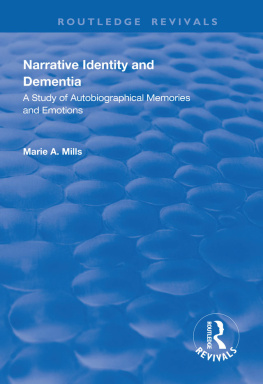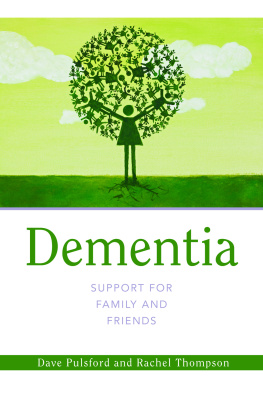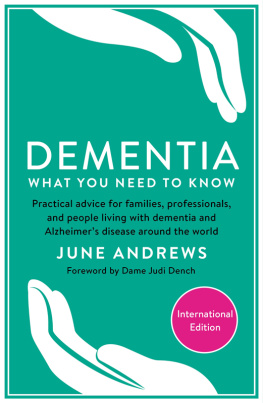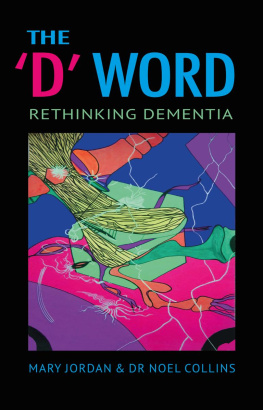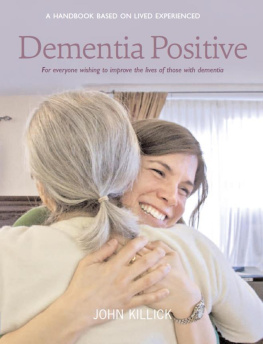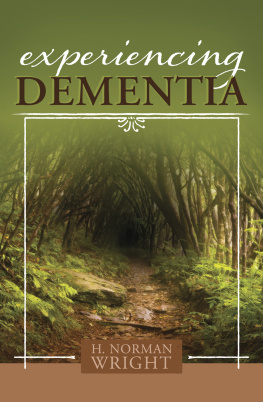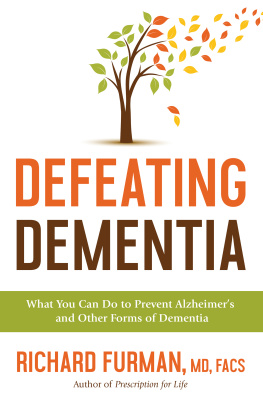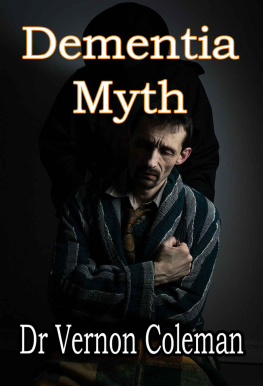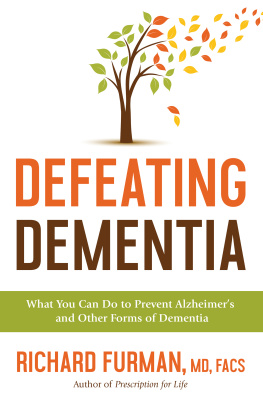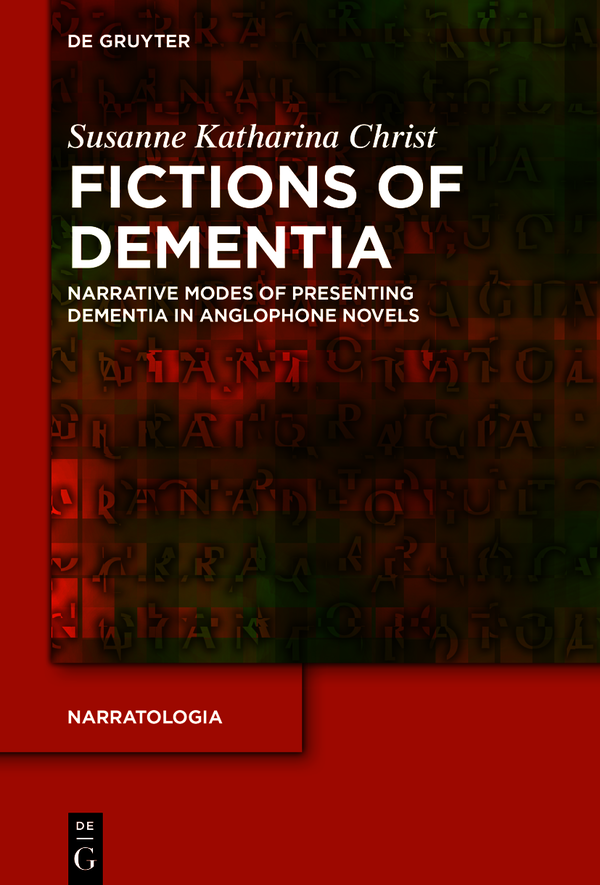Narratologia
Contributions to Narrative Theory
Edited by
Fotis Jannidis
Matas Martnez
John Pier
Wolf Schmid
Catherine Emmott
Monika Fludernik
Jos ngel Garca Landa
Inke Gunia
Peter Hhn
Manfred Jahn
Markus Kuhn
Uri Margolin
Jan Christoph Meister
Ansgar Nnning
Marie-Laure Ryan
Jean-Marie Schaeffer
Michael Scheffel
Sabine Schlickers
Volume
ISBN 9783110789751
e-ISBN (PDF) 9783110789805
e-ISBN (EPUB) 9783110789874
Bibliographic information published by the Deutsche Nationalbibliothek
The Deutsche Nationalbibliothek lists this publication in the Deutsche Nationalbibliografie; detailed bibliographic data are available on the Internet at http://dnb.dnb.de.
2022 Walter de Gruyter GmbH, Berlin/Boston
List of Sigla
AM
Acht Minuten
DNH
The Doctor Needs a Home
EM
Elizabeth Is Missing
FD
Frau Dahls Flucht ins Ungewisse
HE
Have the Men Had Enough?
HMN
House Mother Normal
HP
The Housekeeper and the Professor
IH
Ichs Heimweg macht alles alleine
ML
The Madonnas of Leningrad
MY
May
OM
Out of Mind
SA
Still Alice
SC
Soucouyant
SF
The Story of Forgetting
TC
The Corrections
TW
The Wilderness
WNH
Were not Here to Disappear
Introduction: Cultural and Literary Fictions of Dementia
Cultures are struggling to make sense of dementia. With increasing longevity, changing demographics, and a medical cure not in sight, dementia is one of the major challenges of the twenty-first century. However, dementia is more than a medical problem of the aged or a costly public health crisis. It has been and continues to be deeply entangled with culture, which reacts to dementia in a variety of ways. Dementia appears to violate values that contemporary Western cultures hold dear. At the same time, it rejects knowing: the underlying neurological processes remain in the dark, and the experience of dementia itself is evasive. Thus, we need to think about dementia for at least three reasons: it is urgent; it affects us deeply, and we are responsible for finding forms of coping with it.
First, we need to think about dementia because it is urgent. In the face of about 50 million people affected world-wide, the impact of dementia on societies, economies and cultures is substantial. Dementia researcher Chris Dobson states that [n]eurodegenerative disorders [] arguably represent the greatest challenges to the social fabric and healthcare systems of much of the modern world (2013: n. pag.).
Dementia is a syndrome in which there is deterioration in memory, thinking, behaviour and the ability to perform everyday activities. Although dementia mainly affects older people, it is not a normal part of ageing. [] Dementia is one of the major causes of disability and dependency among older people worldwide. Dementia has a physical, psychological, social, and economic impact, not only on people with dementia, but also on their carers, families and society at large.
(World Health Organization: 2020a)
These key facts about dementia issued by the World Health Organization (WHO) define dementia in terms of an illness that affects many facets of human life. The World Health Organization has accordingly made dementia a public health priority; national dementia strategies are developed, and hardly a day goes by without raising and dashing hopes for a cure. Meanwhile, incidences of dementia are still rising, so the challenge of this public health crisis will continue. Even with adjustments made to healthcare systems, those with dementia and their families are often struggling. The problem remains acute: until today, and despite massive investment and research, causative pharmacological intervention or cures are dreams of the future. Still, the dominant frame of reference for dementia continues to be the medical one. Along with general models of ageing, medical definitions of dementia are deficit-oriented. Burns, Byrne and Maurer describe Alzheimers disease as bringing about deficits in cognitive function that cause amnesia, aphasia, apraxia, and agnosia, various psychiatric symptoms and behavioural disturbances, and difficulties in instrumental and basic activities of daily living (2002: 163). Lucy Burke cautions that an Alzheimers [d]iagnosis produces, rather than simply describes or reflects, a sick, ageing body (2007: 65), and that the way we think about dementia is thus fundamental.
Concepts of dementia have evolved and continue to change within cultures. Decreased cognitive performance or senility has for centuries been part and parcel of conceptualisations of high age (see Frstl and Kpf 2007). The edited volume Concepts of Alzheimers disease: Biological, Clinical, and Cultural Perspectives by Whitehouse, Maurer and Ballenger (2000) provides a detailed overview over the development of a concept of Alzheimers in the United States. In her contribution Aging, Culture, and the Framing of Alzheimers Disease, Martha Holstein traces the gradual conceptual disassociation of dementia and ageing and the formation of diagnosis of Alzheimers disease: she argues that from the nineteenth century on, age had been widely perceived in terms of loss and decline. With the discoveries of Emil Kraepelin, Alois Alzheimer and others at the beginning of the twentieth century (see Dillmann 2000: 133134), Alzheimers disease was quickly accepted as a diagnosis, but the exact causes remained unclear, and classification continued to prove troublesome, so that there was still no exact division between senile dementia or senility and Alzheimers disease (Holstein 2000: 169). Over the course of the twentieth century, along with increased longevity, a rising prevalence of people affected, more scientific understanding and medical differentiation, and more medical interest in the condition, Alzheimers disease was conceptually separated from high age and reified as an independent diagnosis the dominant position today is that SDAT [Senile dementia of the Alzheimer Type] is a disease in which exogenous and endogenous events cause pathological changes in the brain (Holstein 2000: 171). Advances in epidemiology and genetics continue to change the image of dementia.
As much as dementia is a medical topic, it is also a cultural phenomenon. From the 1970s onwards, the development of professional care, the foundation of the National Institute on Aging in 1974 and other support organisations such as the Alzheimers Association, have developed a cultural space (Stafford 1992: 168) for Alzheimers and thus for dementia more generally (see Ballenger 2006). Dementia is also a ubiquitous presence in the media, where it has been described as a raw horror (Gentleman 2010), and those with dementia as fading or gone, empty shells or husks, as many researchers have criticised (Bailey, Dening and Harvey 2019; Peel 2014; Grebe, Otto and Zimmermann 2013). Baldwin van Gorp and Tom Vercruysse (2012) show how the media with its focus on late stages, the silencing of those affected themselves, and the focus of the burden of dementia on families tends to stigmatise dementia and those living with it. These narratives about an alleged silver tsunami of baby boomers flooding Western nations with their copious needs (see, e.g., Das 2015) have made dementia a folk-illness on the top five list of those most feared and costly, as Frederik Tygstrup describes (2010: 114). Although meanwhile, negative stereotypes and metaphors have partly been replaced in the media, aid organisations still warn against using stigmatising and fear-inducing images and language (Dementia Australia 2018).


